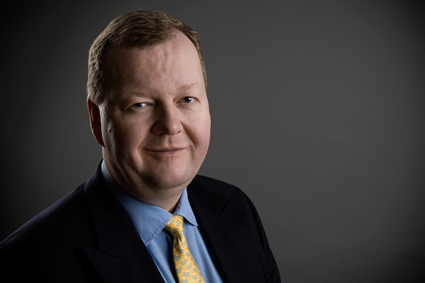
Image: INQUIRER.net stock photo
Perhaps out of our giving nature, we Filipinos are innately generous and hardly scrimp when it comes to our spendings, to the point that we hardly get to save and manage our personal finances. But steps to handle our money effectively can be easily done, as long as we are committed.
Finance expert Peter Lundgreen, CEO of Lundgreen’s Capital, couldn’t agree more. Lundgreen hails from Denmark and set up Lundgreen’s Capital in 2009, his own financial advisory company. Since then, operations have expanded from Europe to Asia. Within the Asia-Pacific region, he holds office in Manila and the company has presence in Hong Kong. He provides expert insight on global financial markets in three languages: English, Danish and German.
For the first time, this executive is providing advice on personal finance, and INQUIRER.net had the chance to discuss with him his own tips on saving and doing business here and abroad.

CEO and professional financial adviser Peter Lundgreen. Image: Website/Lundgreen’s Capital
Read on to find out tips from a global financial adviser on how to make your savings grow:
Get a savings account.
This sounds basic, but according to Lundgreen, many Filipinos still don’t have their own bank accounts. This is the same for many in developing countries. Setting aside money in a savings account, no matter how small the bank interest is, is a step to increasing your savings.
Every little bit of saving counts.
Again, this sounds like common sense, but many still fail to realize this and tend to have “100 percent consumption” of their salary. Before becoming a financial expert, Lundgreen admits he was once young too and loved to spend his income—but soon realized that he had to have savings if he wanted to reach his goals like having his own business.
Is there a magic number of how much you should save? He says no; what matters is you build the habit. Start small and it will snowball into something bigger over time. Setting certain goals also helps, such as making sure one’s savings are worth a certain number of months of their usual expenses. For example, having six months worth of your expenditures as savings is already a good effort.
As much as possible, avoid having a credit card.
Use a debit card instead, he advises. He says “consumption loans”—meaning money borrowed to be used on consumer goods whether it’s clothes or groceries—are “dangerous” because you may tend to spend and be unable to pay it back, and these goods won’t earn you anything.
When can you use a credit card? When you travel and for buying assets such as a house, Lundgreen advises. Assets are resources that would provide future benefit like earning value over time.
Don’t buy assets for the sake of it.
Although having an asset is a good investment should one want to earn from it, he says you still need to consider your life plan. If you feel you don’t need a house depending on where you are in your life, then you shouldn’t feel pressured to buy one. However, he says with certainty that real estate in the country is bound to keep increasing in price.
For long-term savings, invest in financial assets like government bonds.
Bonds are a way that the government or a private corporation borrows money, and then pays back to the lender with interest. Government bonds are safe and stable financial assets since the government is accountable to you. While you won’t be able to touch the money for a certain number of years, you can be sure it will be paid back with interest. Usually, these interest rates are higher than that of banks. These are accessible through banks and insurance companies.
Start saving right away.
The most important part about saving is that you start right away. As Lundgreen says, “Money can’t buy you happiness, but it can buy you a new degree of freedom.” This freedom could be pursuing your lifelong dreams whether it’s becoming more financially independent or pursuing a passion. JB
[This is the first in a series of financial advice articles with Peter Lundgreen.]

